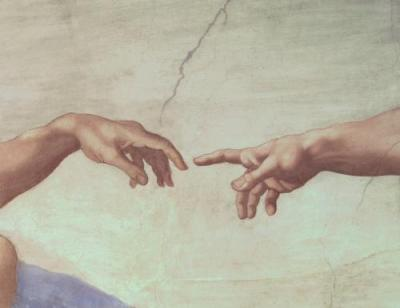 Here’s the latest instalment of Theo Hobson’s regular Coffee House column on religion.
Here’s the latest instalment of Theo Hobson’s regular Coffee House column on religion.
Is the Telegraph’s religion correspondent, George Pitcher, a creationist? Last week he came out as one – sort of. But what he really means, he says, is that he believes in creation as a ‘meta-narrative.’ This is not the same thing. It is muddying the waters to confuse creation-faith with creationism. All Christians believe in God’s creation of the world – but if they are thoughtful and honest they will admit that this is a hugely problematic matter, which more or less defies rational explanation. Creationists are Christians who cannot admit this, who need a pseudo-scientific account of God’s creation, which is of course incompatible with evolution.
Post-Darwinian Christianity is faced with a choice: to accept this difficulty, or to run from it. This dilemma is the subject of one of the best memoirs ever written: Edmund Gosse’s Father and Son. Gosse Senior was a zoologist who refused to accept the new science. This refusal put his son off religion.
The central action of the book takes place in ‘that year of scientific crisis, 1857’. Darwin published The Origin of Species, and Gosse Senior was one of the few leading biologists who could not accept the possibility of its truth. He could not dispute the science – except by appealing to the literal truth of Genesis. ‘There is a peculiar agony in the paradox that truth has two forms, each of them indisputable, yet each antagonistic to the other. It was this discovery, that there were two theories of physical life, each of which was true, but the truth of each incompatible with the other, which shook the spirit of my Father with perturbation.’ He became one of the very first creationists (for creationism entails awareness of the temptation of Darwinism). He gets more deeply involved in the super-narrow Plymouth Brethren.
His decision is a refusal to face the difficulty of faith. This, to his son, is his crime: not being scientifically wrong but being emotionally dishonest, spiritually cowardly. It is an important distinction.
The author’s account of his boyish involvement in the Plymouth Brethren is very funny. The best scene of all comes when his father announces that he is to remarry (his wife has died). In a uniquely tender moment he wakes his son with the happy news, and proudly discloses his new wife’s identity: fortunately it is someone Edmund likes. ‘So far so good, and I was well pleased. But unfortunately I remembered that it was my duty to testify “in season and out of season”. I therefore asked, with much earnestness, “But, Papa, is she one of the Lord’s children?”’ His father confesses, a little sheepishly, that she is as yet an Anglican, but is confident of her imminent conversion.
“Our positions were now curiously changed. It seemed as if it was I who was the jealous monitor, and my Father the deprecating penitent. I sat up in the coverlid, and I shook a finger at him. ‘Papa,’ I said, ‘don’t tell me that she’s a pedobaptist?’ I had lately acquired that valuable word, and I seized this remarkable opportunity of using it.”
The importance of Gosse’s memoir is that it anticipates the principal intellectual objection to religion of our day. It is not scientific atheism (despite Dawkins’s sales figures). Intelligent people, as opposed to half-intelligent people, are aware that the ‘conflict’ between religion and science is very vague, and are embarrassed by the militant atheist pretence otherwise. The really powerful intellectual objection to religion of our day is that it fosters emotional dishonesty, repression of the human spirit; that the religious mind prefers cosy cliché to the particularity of human experience.







Comments